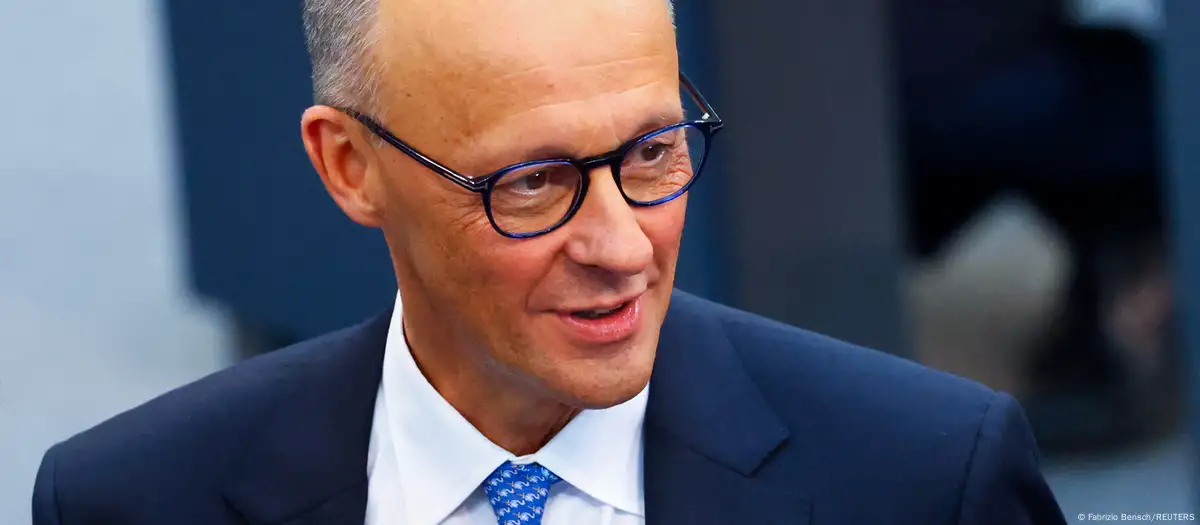Conservative figure Friedrich Merz has officially secured his role as Germany’s new chancellor following a second-round parliamentary vote, succeeding after a historic failure on his first attempt.
In an unexpected twist on Tuesday morning, Merz initially missed the required absolute majority by six votes, marking an unparalleled defeat in post-war German parliamentary proceedings and a blow to his political authority.
Because the 630-member Bundestag conducted the vote by secret ballot, it remains uncertain which legislators withheld their support — whether they were members of his own conservative bloc or from the Social Democrats, his coalition partners.
After several hours of deliberation and growing uncertainty, Bundestag leadership and party officials agreed to proceed with a second vote later in the day. This time, Merz received 325 votes — surpassing the majority threshold by nine. Although his coalition held 328 seats, estimates suggest that up to 18 members broke ranks in the initial vote.
Such a failure is without precedent in the 76 years of Germany’s post-World War II democracy. The Bundestag was left in a state of confusion and speculation in the wake of the initial result, given that no previous chancellor candidate had ever lost a confirmation vote.
Under German constitutional law, there is no fixed limit on how many times a chancellor vote may be held. Still, political analysts agreed that a second defeat would have caused severe instability for Merz’s Christian Democratic Union (CDU), its Bavarian sister party, the Christian Social Union (CSU), and their center-left allies, the Social Democratic Party (SPD).
One German media outlet remarked that the outcome, while tense, had prevented a full-scale political collapse.
Following his confirmation, Merz, 69, was formally sworn in as chancellor by President Frank-Walter Steinmeier, with his cabinet of 17 ministers expected to assume their respective roles shortly thereafter.
Though Bundestag President Julia Klöckner initially proposed delaying the re-vote until Wednesday, CDU General Secretary Carsten Linnemann emphasized the urgency of swift action. “Europe requires a stable Germany. We cannot afford to delay for days,” he said during a televised interview.
Jens Spahn, head of the CDU parliamentary group, called on members to act with responsibility, stressing, “All of Europe, perhaps even the world, is closely observing this process.”
The failed first vote was widely interpreted by commentators as an embarrassment for Merz, potentially driven by discontent within the SPD. While SPD leaders insisted on their commitment to the coalition agreement signed a day prior, the surprise defection raised questions.
During the first vote, nine MPs were absent, three abstained, and one ballot was deemed invalid, according to the Bundestag president.
Gunther Krichbaum, Germany’s incoming Europe Minister, speculated that certain legislators may have been disappointed over cabinet appointments. He also noted that some younger SPD members had publicly expressed doubts about Merz’s candidacy. Nevertheless, SPD officials maintained that the parliamentary group stood behind the coalition plan.
Ralf Stegner, a senior SPD lawmaker, remarked: “Although no one can know for sure due to the secrecy of the vote, I am confident our group understands the gravity of our role.”
Krichbaum, a conservative, interpreted the final outcome as a mandate to establish a stable administration prepared to address pressing national issues such as economic recovery and immigration policy.
The far-right Alternative for Germany (AfD), which finished second in February’s election with 20.8% of the vote, seized on Merz’s initial setback to push for new elections. Co-leader Alice Weidel claimed the vote revealed the “fragile foundations of the coalition between conservatives and the SPD, which was rejected by the electorate.”
Merz’s nominee for foreign minister, Johann Wadephul, downplayed the earlier defeat, calling it “an obstacle, not a disaster.”
Germany’s government transitions are known for their structured nature. The evening before the first vote, outgoing chancellor Olaf Scholz was honored with the traditional Grand Tattoo by the military’s ceremonial band.
There had been little expectation that Merz would face difficulty on Tuesday morning. The former CDU leader’s long-standing ambition to lead Germany appeared on the verge of realization, with even former chancellor Angela Merkel attending the first vote, though she did not return for the second.
Among the first international leaders to offer congratulations was Ukrainian President Volodymyr Zelensky, who expressed hope that Germany would “grow stronger and that we’ll see increased German leadership in European and transatlantic affairs.”
Despite his confirmation, analysts noted that the unexpected result may signal deeper unrest within the coalition. Some questioned the ideological coherence of a partnership that included both conservatives and center-left figures.
AfD lawmaker Bernd Baumann argued that the CDU had adopted policies similar to his party — such as tougher immigration controls — only to form an alliance with ideological opponents. “That’s not how democracy is supposed to function,” he declared.
Green Party politician Katrin Göring-Eckardt warned against reveling in the disarray: “Even if I don’t support this chancellor, I caution everyone not to celebrate chaos.”
Just a day prior, Merz had portrayed his incoming government as a stabilizing force to end half a year of political gridlock. “We have a historical responsibility to make this coalition succeed,” he had proclaimed during the signing of the coalition agreement.
Though the new government holds only a slim 12-seat majority, its formation is seen as more durable than the previous traffic-light coalition — a three-party alliance that dissolved last November amid disputes over debt spending.
The SPD, once the dominant party in that coalition, fell to third place with its worst result in post-war history. Still, Merz has pledged to reinvigorate Germany’s role on the international stage and stimulate a lagging domestic economy.
Following two years of recession, Germany’s economy showed modest growth in the first quarter of 2025. However, economists continue to warn of headwinds, particularly related to U.S.-imposed tariffs that could affect exports.
Meanwhile, Germany’s services sector contracted last month, driven by reduced demand and a drop in consumer spending.







